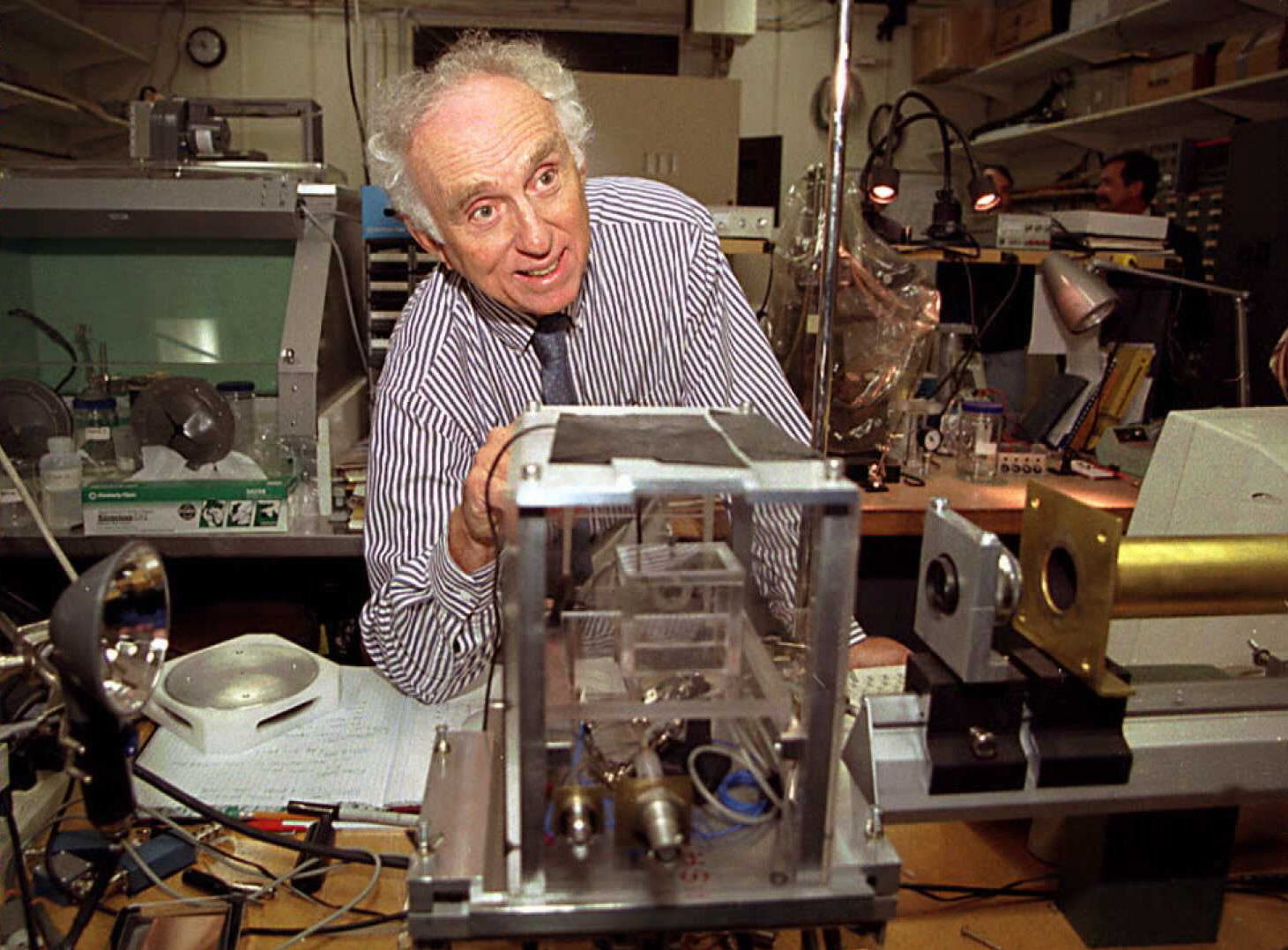Pure Scientific Research

He pointed out that one of Einstein’s equations laid the groundwork for the laser, which eventually became the technology by which we scan our UPC codes when we buy our consumer products, although Einstein (obviously) wasn’t contemplating that at the time.
It’s an interesting topic, to be sure. In 2011, I interviewed Dr. Martin Perl, an aging genius who, at the time, was running the Stanford Linear Accelerator, after having won the Nobel Prize in physics for discovering an elementary particle, the tau lepton.
I happened to ask him about the practical application of his life’s work, and he told me flatly, “There is none.”
I was stunned, and I immediately began to stammer to correct my mistake, ” Oh, let me ask this a different way. Isn’t there a chance that something you and your graduate students are doing could eventually have some sort of practical implication?” He replied, again to my astonishment, “Not one in a million.”
Hey, I’m not a particle physicist, so I’m not in a position to argue, but it does seem a bit weird that what we’re learning about the core components of the universe couldn’t possibly have some future application in our lives.
